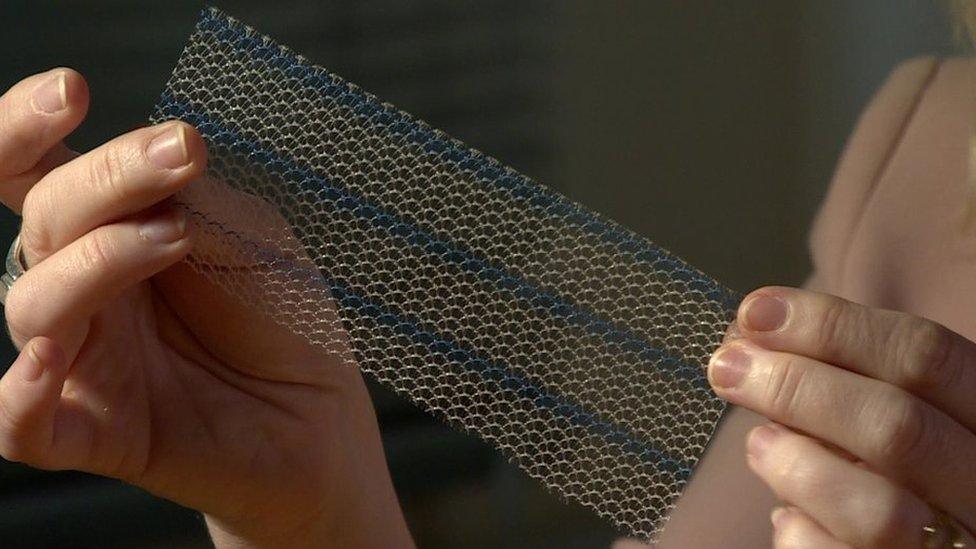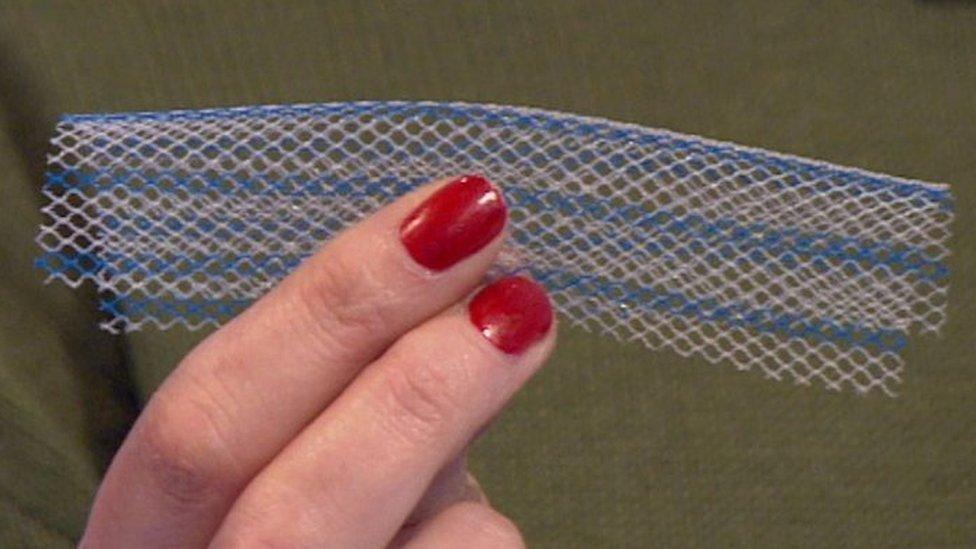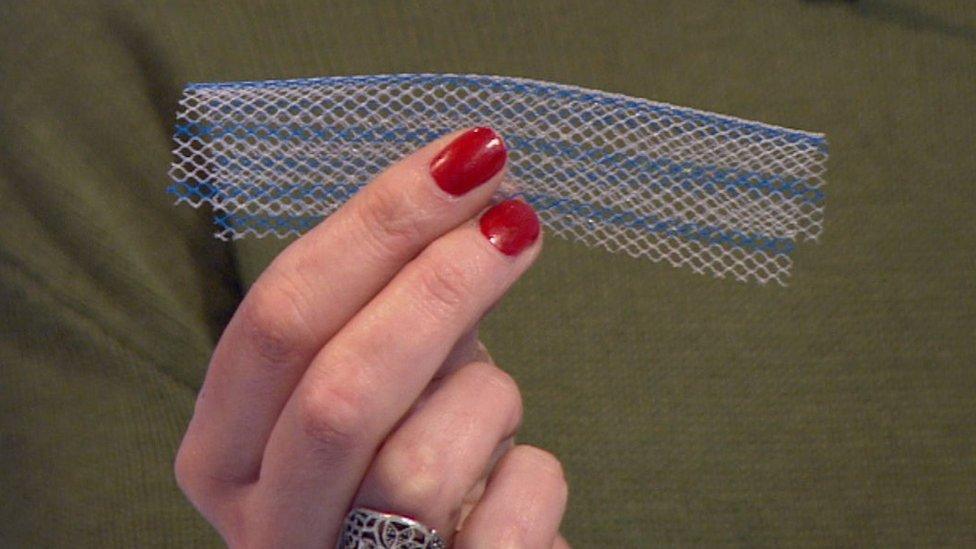Mesh implants: Man speaks of procedure's devastating impact
- Published

A man who had a mesh implant following a hernia said it has had a devastating impact on his life.
Graham Robertson, who had hernia surgery in 2007, said he has had serious health complications following the procedure.
The British Hernia Centre said complications were very rare.
In September, Scotland's health boards were told to halt the use of vaginal mesh implants in surgery, after calls for an inquiry and an outright ban.
Mr Robertson told Radio Scotland he has been living with pain, mobility and mental health problems for over a decade.
He said he has been on a "gambit" of medications to try to keep the pain at bay.
Exacerbated
"About four years ago, I started to have other more serious complications and increased pain; I had things like IBS, folliculitis, epididymitis, pain when making bowl movements, dysejaculation and pain that made sex prohibitive.
"Couple that also with mobility problems caused by the pain, because of course it's a pivotal point in your body."
He said that further treatment has made his situation worse, and as a result his mental health has been impacted: "I sought help and tried to get some other treatments which in my view exacerbated the problem.
"I've been on and off antidepressants. Any doctor will probably tell you that chronic pain and antidepressants go hand in hand.
'Dismissal', 'denial', 'confusion'
Mr Robertson said he felt "dismissed" by his doctor: "I think he said at the time 10% of people who had the operation had problems with it afterwards, when of course when I got the operation originally that percentage was only 3%.
"He had the opportunity to investigate what was going on, but pretty much dismissed me out of hand, so much so that I had to complain to the NHS in order to begrudgingly get another consultation.
After four surgical consultations, he feels the responses have ranged "from dismissal to denial, and now confusion".
"I think my doctors is in agreement that the device has failed in some way or something has certainly failed with the repair.
"The doctors or surgeons look at it as if the hernia has not returned then that's a success to them and the hernia's not returned so...
"The latest surgeon has said almost with a kind of shrug of the shoulders, 'We can try and take it out, but it may cause more damage and the chances are that you could lose your testicles'."

Dudley Rogg, of the British Hernia Centre, said: "I fully sympathise with all the people who believe mesh has caused them these post operative problems. However, there is another side to the story."
He said the procedure, which was introduced 30 years ago, replaced a technique from the 1800s.
"Nobody is disputing Graham's problems, they are there... The sort of problems that Graham and others are reporting in relation to their hernia repairs existed before mesh was ever used...
"The number of successful mesh operations is beyond compare.
"The statistics for post-operative complications were something up to 60% with the old techniques... We've brought those statistics down to a fraction of 1%"
Labour MSP Neil Finlay is concerned that this experience mirrors the problems some patients had with transvaginal mesh.
He said: "What I see looks very much like a repetition of the issues that came up during transvaginal mesh.
"Listening to Graham is very similar to listening to some of the women six years ago, where clinicians didn't believe them. People were experiencing excruciating pain...
"Many of them were told 'This is all in your head. This is nothing to do with the mesh', and six years on, off relentless campaigning, we got to a position where mesh has clearly been identified now as being a global health scandal."
- Published12 September 2018
